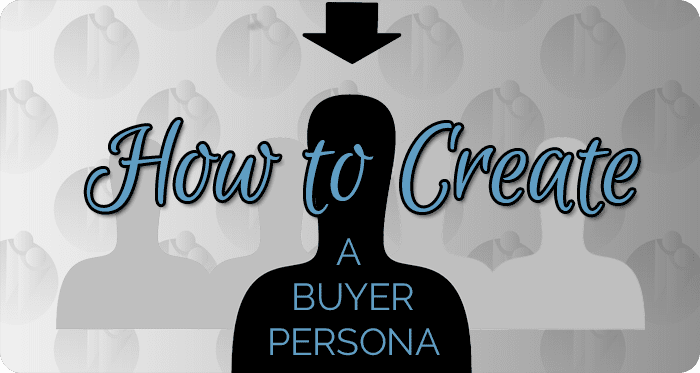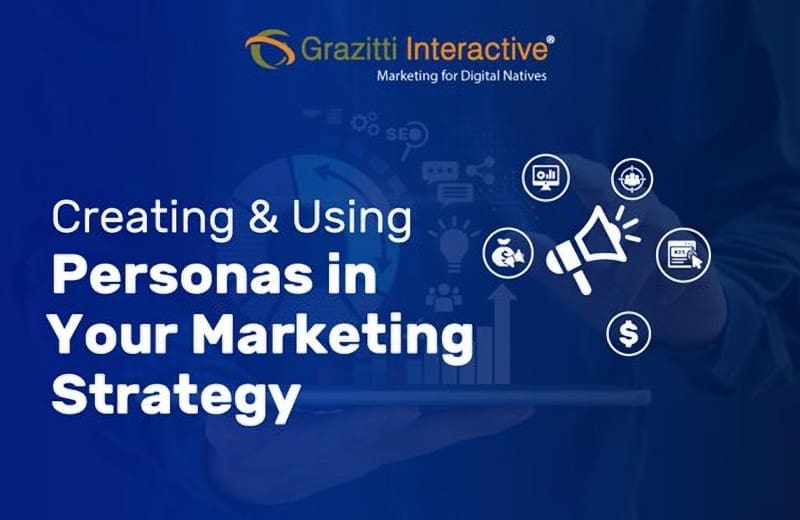How to Create a Buyer Persona
This page may contain links to Amazon.com or other sites from which I may receive commission on purchases you make after clicking on such links. Read my full Disclosure Policy

Effective content marketing is all about creating and delivering content that will appeal to the right people, in the right places, at the right times. To create content that will appeal to the person who is likely to purchase your products or services, you need to know precisely who that is. In marketing lingo, this ideal customer profile is often referred to as a buyer persona.
Research Methods
Begin this process by making a list of your best clients and determining what they have in common. You’re probably aware of some similarities, but may be surprised to discover others. When I went through this exercise, I realized that most of my clients have a university education and one or more dogs, neither of which I would have anticipated.
Unless you ask a lot of questions as part of your intake process, or work with clients on a long-term basis, you probably don’t know very much about them. This is especially true if you sell products online, where you have minimal interaction with your customers. In most cases, you’ll need to gather additional information through surveys or interviews.
Surveys
Online surveys may be created using a tool such as Survey Monkey or the Gravity Forms plugin for WordPress.
There are many benefits to collecting data this way:
- Consistency – everyone is asked the same questions in the same way
- Time – your time commitment is limited to creating the survey, contacting the people you wish to survey, and reviewing the responses
- Flexibility – individuals can respond to the survey at their own convenience
On the other hand, there are disadvantages:
- Lack of response – most people are busy, and many will either choose not to complete it or will intend to do it “later”
- Accessibility – although more and more people use the internet, you may have clients who don’t, or who aren’t tech savvy enough to complete an online survey
- Inaccurate responses – someone may click in the wrong box, either inadvertently or because they aren’t concerned about providing you with useful information
Interviews
Speaking directly to your contacts will eliminate the disadvantages of online surveys, but introduces other issues:
- Time – you need to set aside a good chunk of time to schedule and conduct the interviews
- Scheduling – it may be challenging to find times when both you and the interviewees are available
However, there are advantages as well:
- Easier to develop rapport
- More in-depth responses
Who should you approach?
For an online survey, send the link to all of your customers and prospects.
If you’re conducting interviews, five to ten will probably garner enough information for you to create a buyer persona.
If you don’t have enough clients and prospects to complete your research, use LinkedIn and business cards you’ve collected to identify others who might align with your target audience.
What should you ask?
Study the following suggestions and develop questions that are most relevant to your business. Although it would not be appropriate to ask directly for some of this information, it may be useful if it comes up indirectly.
Demographics
- Gender, age, ethnicity
- City/country of residence
Early Years
- City/country of birth
- Where they grew up: city, suburbs, rural
- Family background
- Birth order
- School and social activities
Education
- Literacy/education level
- If/where they went to college/university
- Field of study
- Social and extra-curricular activities
Work
- First job
- Current job: role, industry, level, responsibilities
- Why they chose this job
- Do they like their boss, co-workers, work
- Future career plans
- Company size (if you sell business-to-business)
Finances
- Debt, net worth
- How they make buying decisions
- Who else is involved in making buying decisions
Lifestyle
- Sexual orientation
- Political and religious views
- Causes they support
- News sources they read
- Living situation, family, pets
- Type of home
- Social activities, hobbies
- Preferred TV shows, movies, music, reading
- Vacations – what type, where, how often
- Sports, fitness, physical activity
- Do they drink, smoke
Personality
- Introvert or extravert
- Optimist or pessimist
- Right brain or left brain
- Do they follow rules or break them
- Independent or crowd-follower
- How do they adapt to change
Technology
- How tech savvy are they
- Preferred operating system, browser, search engine
- What social media sites do they use – if none, why?
- Preferred method of communication: email, text, phone
- Do they shop online – why or why not
- Type of cell phone, what they use it for
Questions Specific to Your Product or Service
- Why they need it – what challenges of theirs does it address
- When they need it: occasional or ongoing
- What else offers the same or similar benefits
- Why they would choose you over a competitor
- Number one concern: price, quality, etc.
- How they prefer to buy: online, in person, over the phone
- Preferred method of payment
- What they like about your product or service
- How they learned about your business
- Where they consume your content
Keep in mind that if you ask too many questions in an online survey, you run the risk that people won’t answer all the questions, or that they’ll click random answers just to get to the end.
Because an interview is more conversational, it’s easier to ask more questions. Furthermore, they can be open-ended questions, allowing you to solicit more in-depth information.




This is great, Janet. I created surveys years ago but was thinking this morning that I would love to do another one. This will help a great deal. Thank you for sharing.
Wow, what good timing! I hope you uncover lots of useful information.
Knowing who you are selling to actually makes decision-making easier. It seems like it takes time to figure this out, but it returns that time going forward!
I find that’s true about so many things in business. We get an idea and want to run with it, but we’re better off to take our time and plan it all out first.
What a great resource, Janet. I will be saving this and referring back to it as I fine tune my buyer persona.
I hope you’ll find it helpful!
You’ve given me lots of good for thought on surveys. Definitely saving! Thank you, Janet.
Happy to help!
Janet your Maximize Marketing Club has been a great motivator for me to take a hard look at improving my marketing strategy. I really like all the great information you supply and the in-depth approach of staying with a topic for a month. It gives me time to develop a plan that will work for me. Thanks for being so available to help with questions, chat and to motivate us.
Julie, I’m so pleased that you’re finding it of value! You are a valuable member of the community.